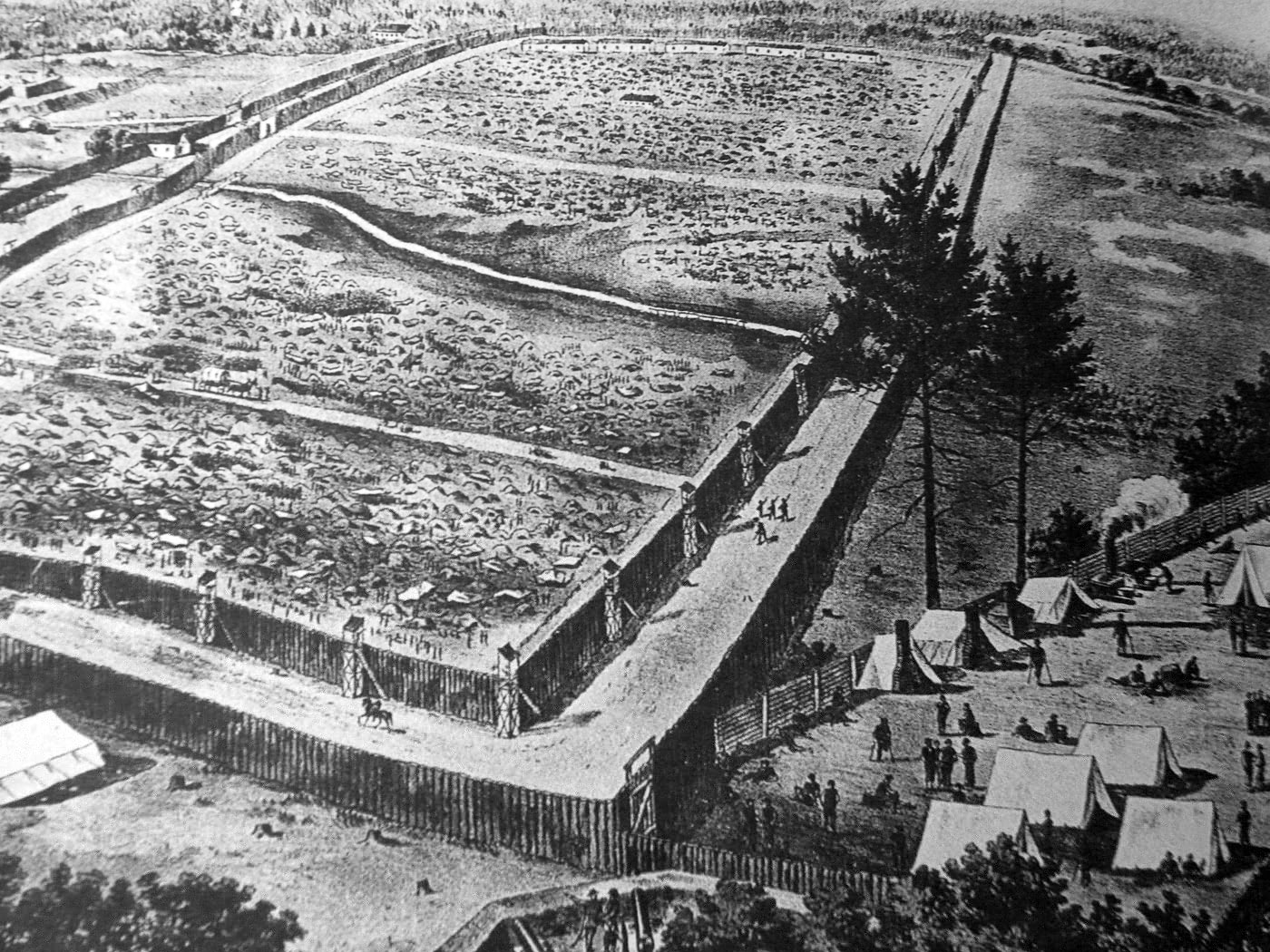
Andersonville Prison
Then in 1863, there were so many prisoners in Richmond, Virginia, that the Confederacy chose to build a new, 16 acre prison outside of Andersonville, Georgia. Captain Henry Wirz was chosen to command the prison. Wirz was medical doctor, who was a native of Switzerland. He had come to the United States in 1849. Wirz had been living in Louisiana when the war broke out and he soon enlisted in the Confederacy. A short time later he lost his right arm in combat. At this time he was removed from combat duty and placed in charge of the prison. However, before they could get started the size of the prison increased to 26 acres. This was so a stockade and a stream could be included. There were no tents or any kind of shelter. The prisoners lived exposed to the elements.
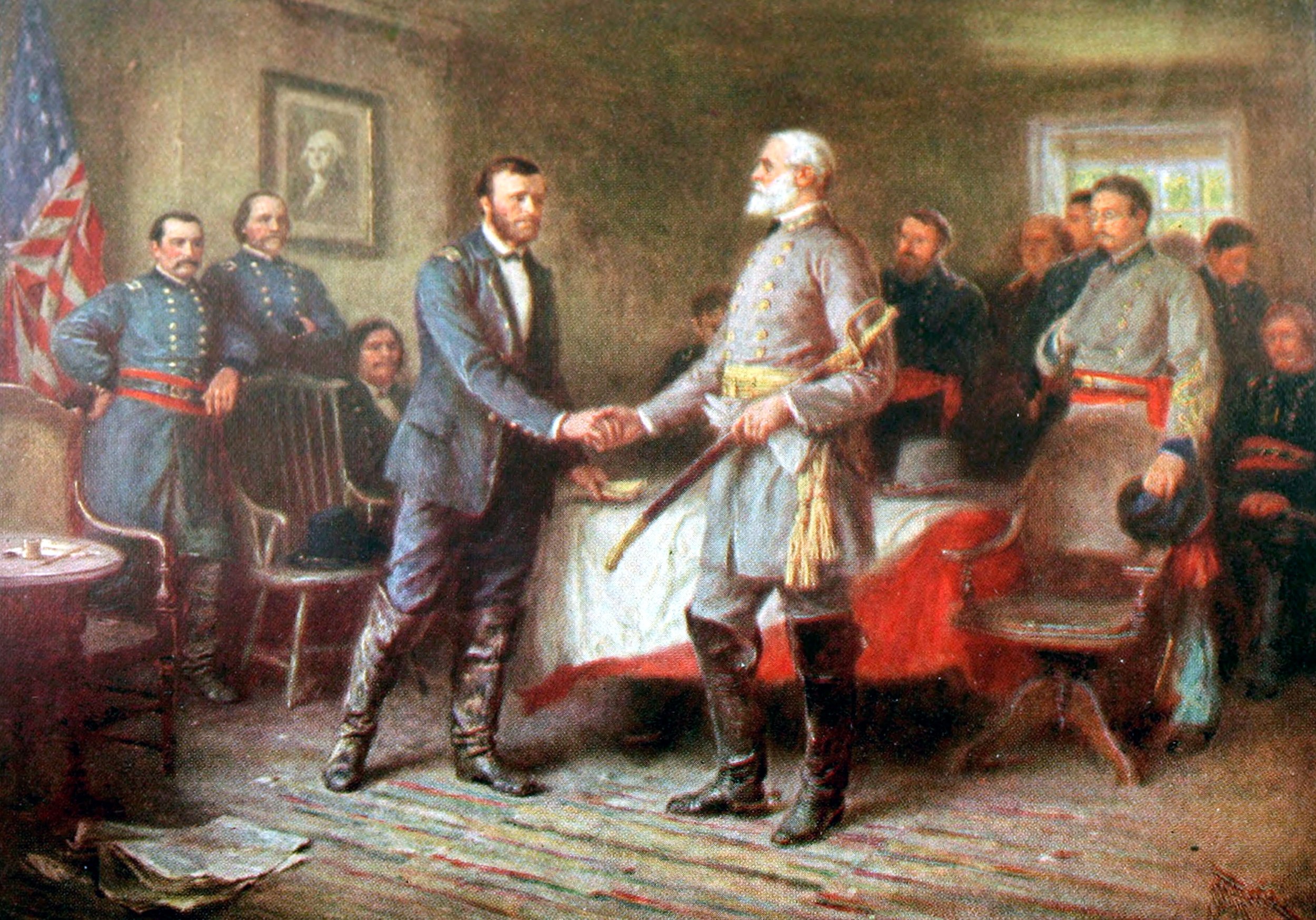
Appomattox Courthouse
During the spring of 1864, General Ulysses S. Grant initiated his Overland Campaign to defeat General Robert E. Lee and capture the Confederate capital of Richmond, Virginia. It would take until June before Grant and his forces would have Richmond surrounded. At almost the same time, Grant also besieged Lee and his Army of North Virginia at Petersburg, Virginia. Lee and his forces held the line in Petersburg for 10 months until he realized that he had to make a move. Lee knew that it was just a matter of time before General Sherman and his troops would be arriving from the Carolinas. Lee did not believe that the Confederacy could survive if Sherman joined forces with Grant.
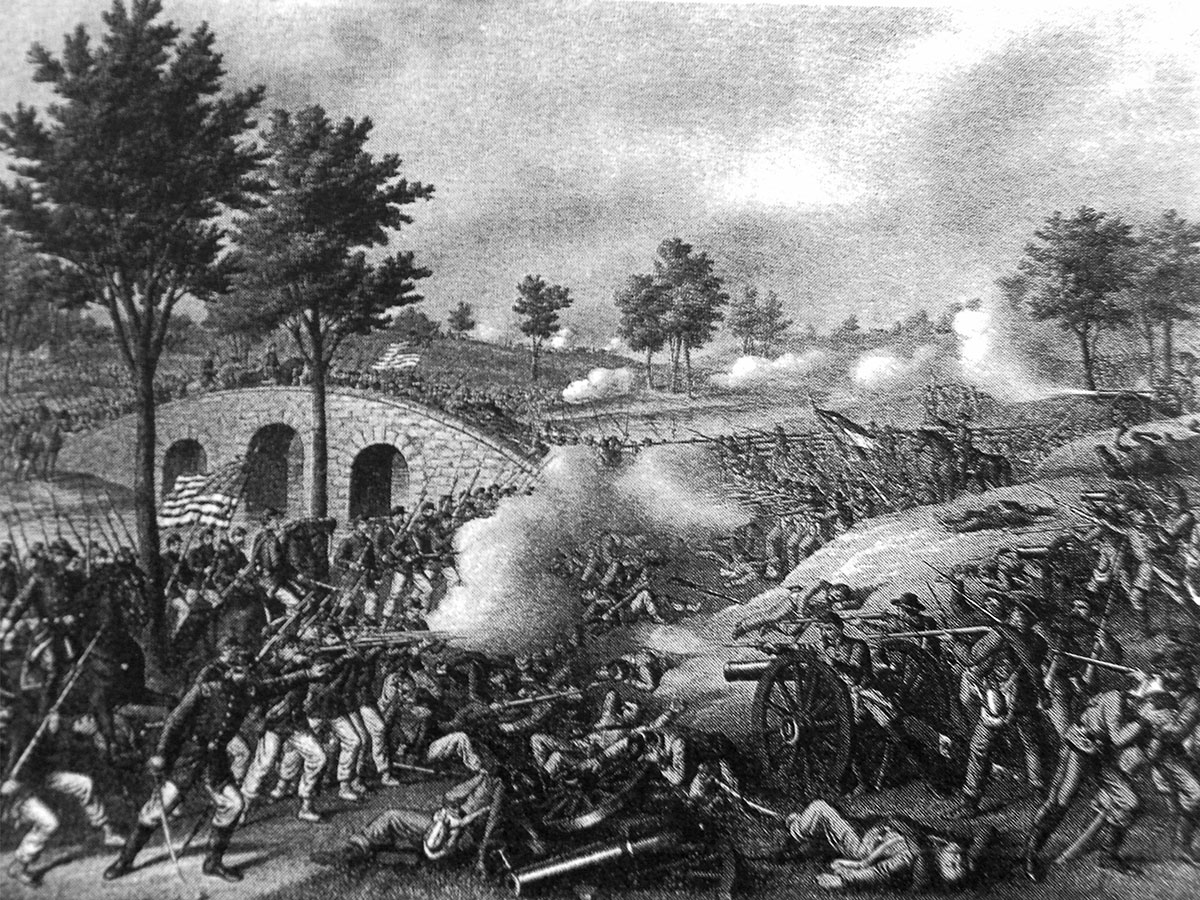
Battle of Antietam
The Battle of Antietam was the bloodiest day in American military history. During one single day of battle more than 23,000 Americans were either wounded or killed. There were more casualties on that day than the American Revolution, the War of 1812, the Mexican American War, and the Spanish American War combined. The Confederate loss could not have come at a better time for the Union forces because it discouraged European countries from offering their support to the Confederacy. The victory provided President Lincoln the opportunity to issue the Emancipation Proclamation. Lincoln made it clear that the primary goal of the war now was to free the slaves. After the issuing of the Proclamation an additional 180,000 African Americans enlisted on the Union side.
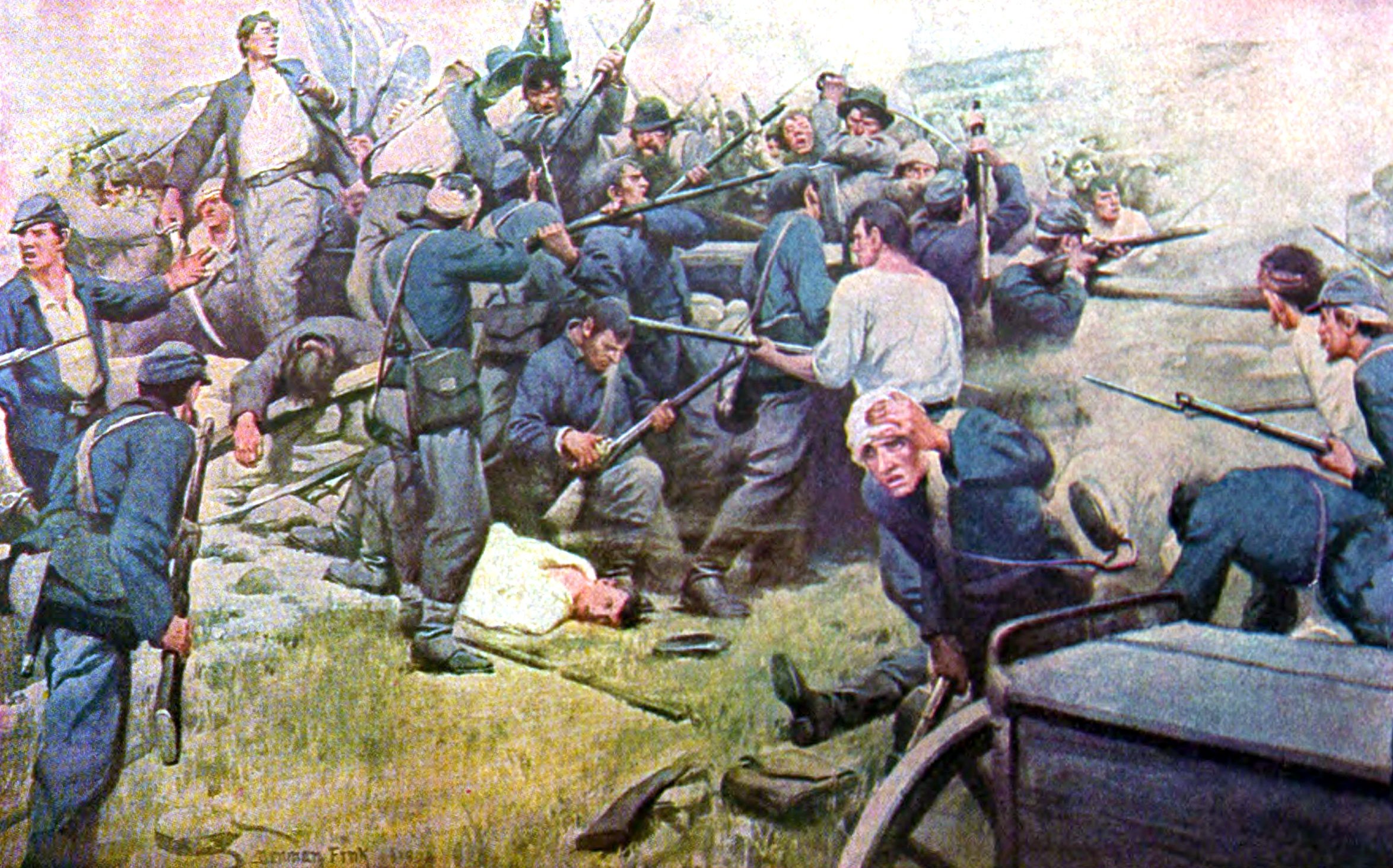
Battle of Gettysburg
Directly following the Battle of Antietam, the Confederate Army was successful in several battles including Fredericksburg and Chancellorsville. The continuous series of battles had drained the South of irreplaceable resources. They were largely irreplaceable as a result of President Lincoln's Anaconda Plan. The Plan blockaded Confederate ports, keeping them from receiving badly needed supplies including arms and ammunition. Once more President Jefferson Davis turned to General Robert E. Lee for advice and leadership. Davis and Lee decided to again send the Army of North Virginia northward to search the factories and countryside of Maryland and Pennsylvania for badly needed supplies. Lee hoped that a victory would move the European nations to support their cause.
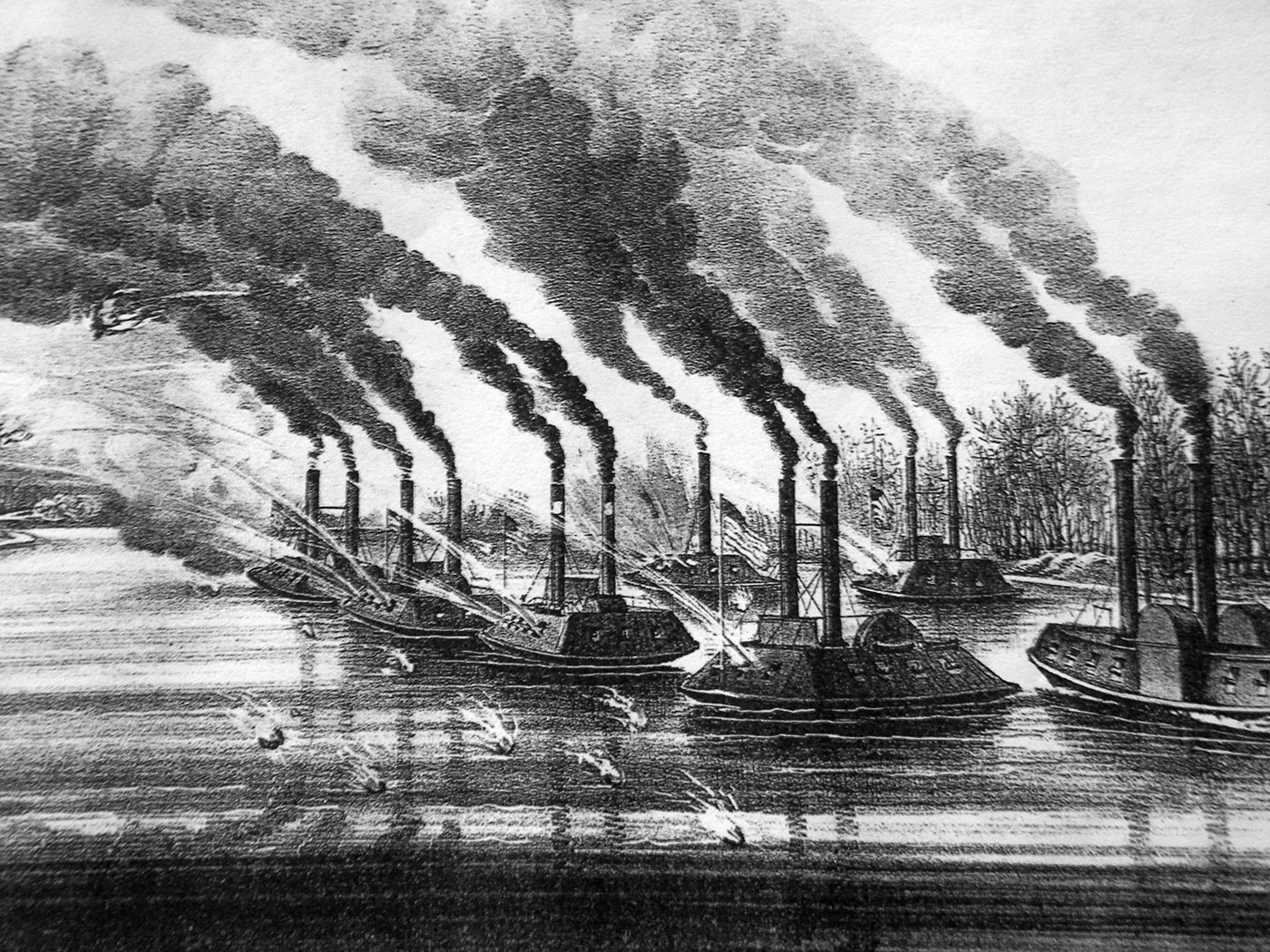
Battle of Vicksburg
During the 1860's Vicksburg, Mississippi, was a thriving commercial and industrial center. The city was well fortified, and its location overlooking the Mississippi River made it extremely important. From a vantage point on a bluff above the river the Confederate Army was in a position to permit or deny passage. At the time, Confederate forces moved their supplies freely up and down the river without interference. However, that would soon change after Union leaders realized the importance of the river as a transportation line. If they controlled it they could move their own supplies and troops on the river.
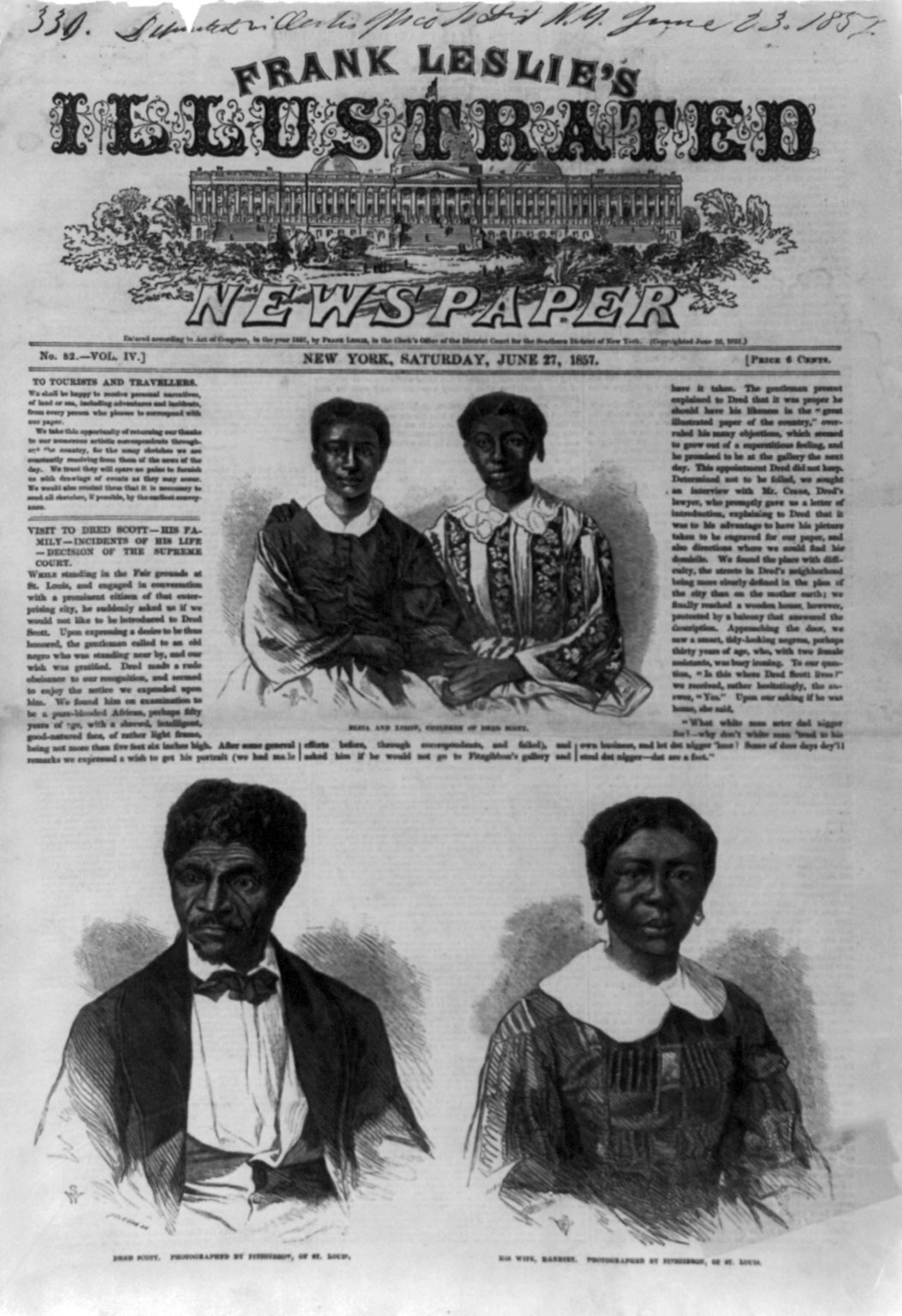
Dred Scott Decision
Dred Scott tried to purchase his freedom from Mrs. Emerson. However, Mrs. Emerson was against freeing him. Then on April 6, 1846, Dred Scott surprised everyone when he filed suit against the widow Emerson. He sued on the grounds that he had spent long amount of time in free states and as a result he should be given his freedom. A few days later a Missouri circuit judge ruled in Dred Scott's favor. However, Mrs. Emerson appealed the decision to the state supreme court. Subsequently, the supreme court ruled in her favor in 1852. Mrs. Emerson immediately sold Dred to her brother, John Sanford. Sanford lived in New York, but traveled frequently to St. Louis on business. At this time, Dred Scott was allowed to take his case to the United States Supreme Court because the case now involved 2 states.
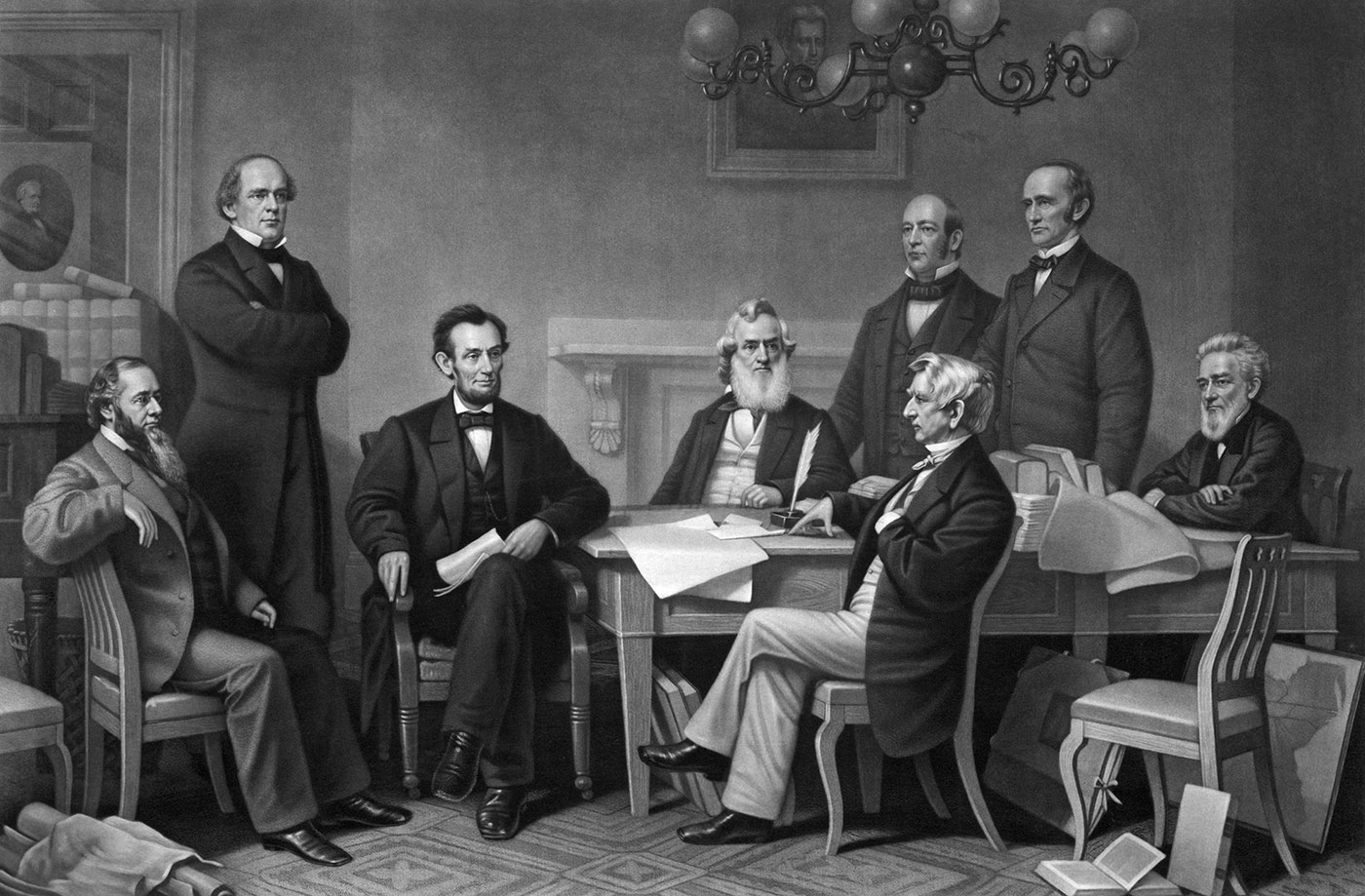
Emancipation Proclamation
Although the Battle of Antietam was not a runaway victory, it did in fact force the retreat of Robert E. Lee and stop his invasion of the North. A week after the victory, on September 22, 1862, Lincoln issued the Emancipation Proclamation. It caused an immediate uproar. It freed the slaves in the South while not mentioning the slaves that existed in the North. He had freed the slaves in territory where he presently had no jurisdiction. As a result, the slave owners in the North kept their slaves. The following fall the Lincoln Republicans lost several seats to the Democrats who at the time favored a peaceful ending to the war and the recognition of the Confederacy. They even won Lincoln's home state of Illinois.
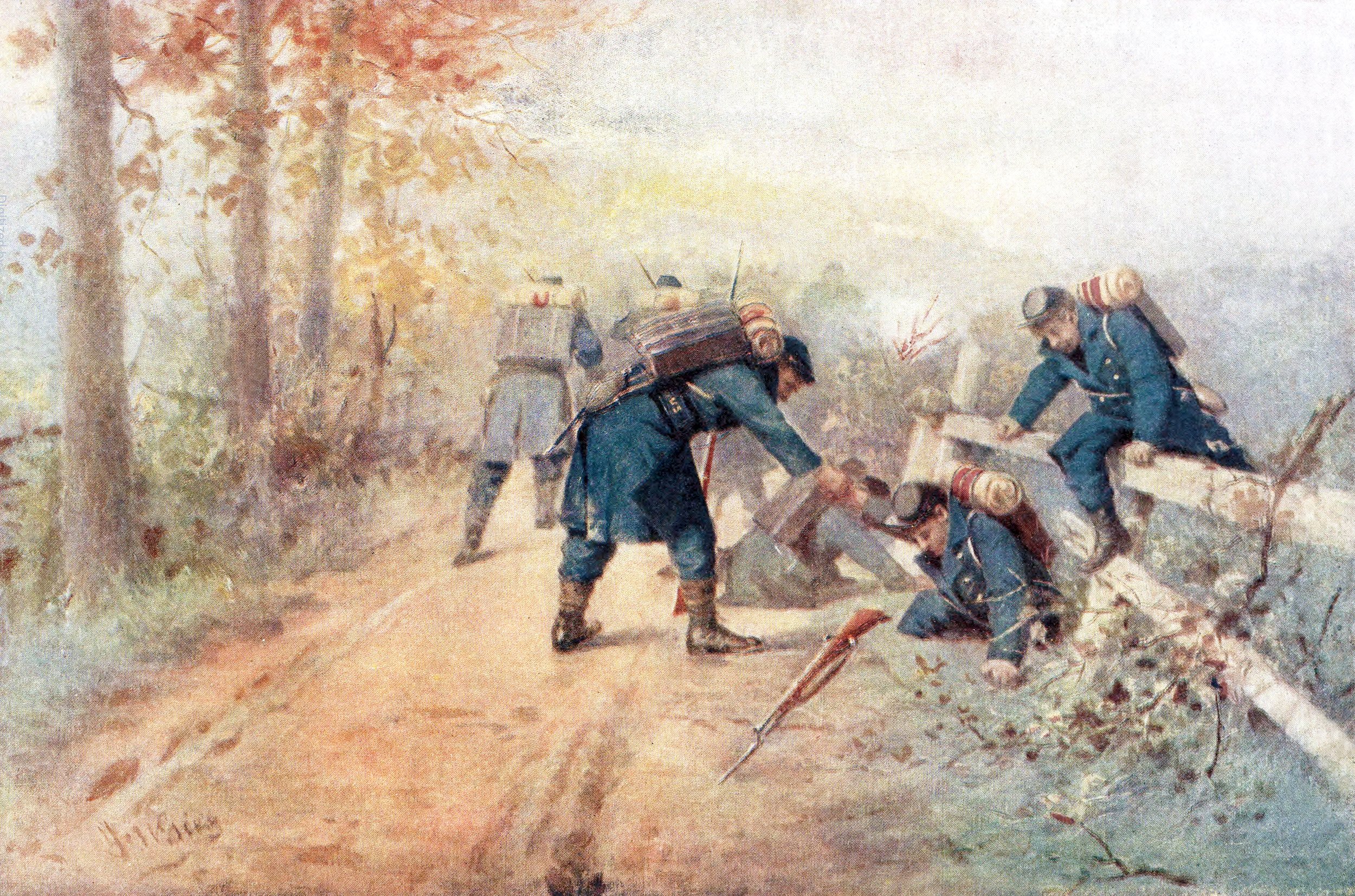
First Battle of the Bull Run
On July 18, Lincoln ordered the Union Army to march toward Manassas. In command of the army of 35,000 men was General Irwin McDowell. Accompanying them was a crowd of curious onlookers on horseback and in carriages who believed what they were about to see was some kind of sporting event. Many bought picnic lunches in hopes of watching the battle from the surrounding hillsides. When the battle started, General Beauregard and his men waited in a 14 mile front along Bull Run Creek. The Confederate rebels first tried to attack the Unions left flank, but they soon found themselves overwhelmed by the size of the Union Army.
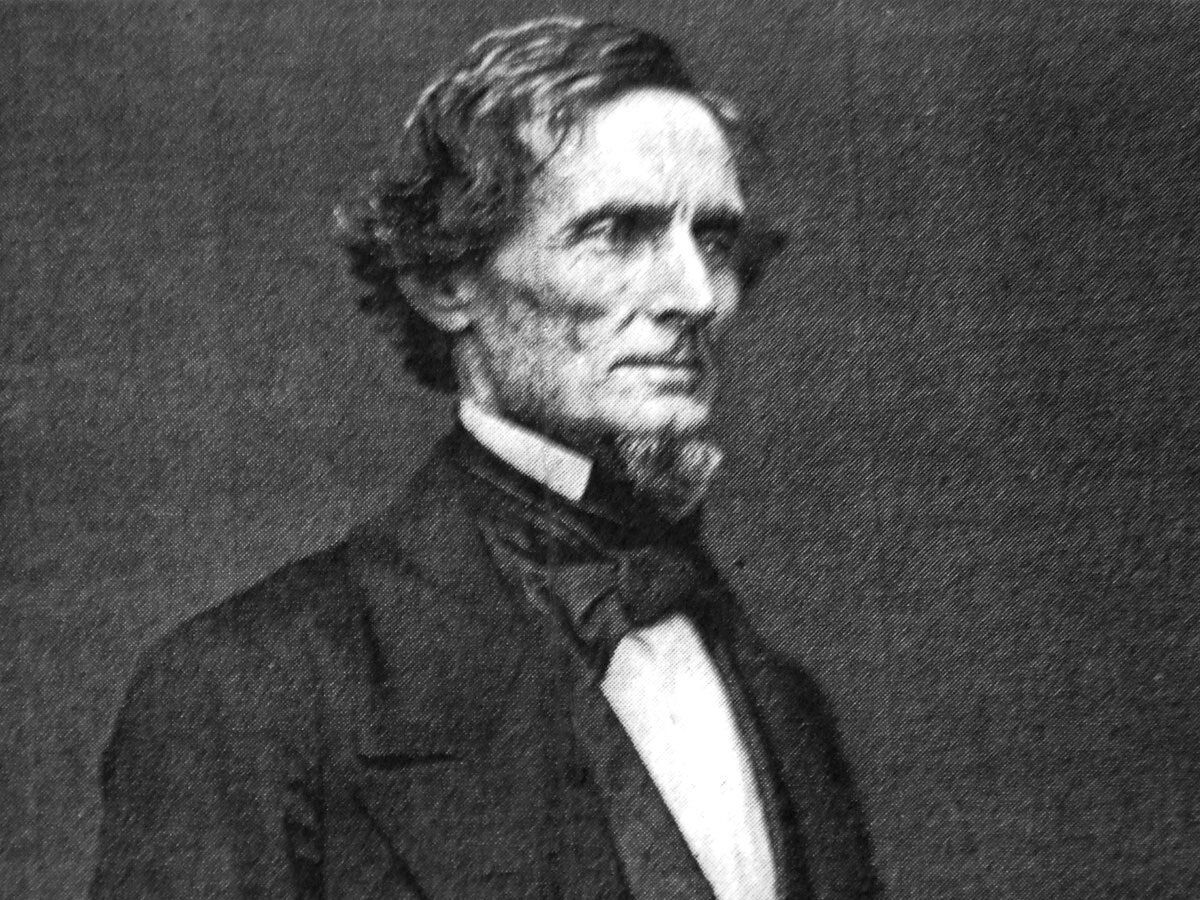
Jefferson Davis and the Confederacy
Just prior to the South seceding from the nation, Jefferson Davis was the United States Senator to Mississippi. He was also a West Point graduate and a war veteran having served in both the Black Hawk War and the Mexican American War. While serving in the Senate, Jefferson Davis had become a hard liner in favor of slavery. He was elected by popular vote to a six year term, and he would remain the President of the Confederate States of America for the entire duration of the Civil War. Throughout his presidency he was plagued with problems. At the same time Davis was not very effectual diplomatically. He was in constant search of money and was always hoping to receive support from the European nations, but the support never came.
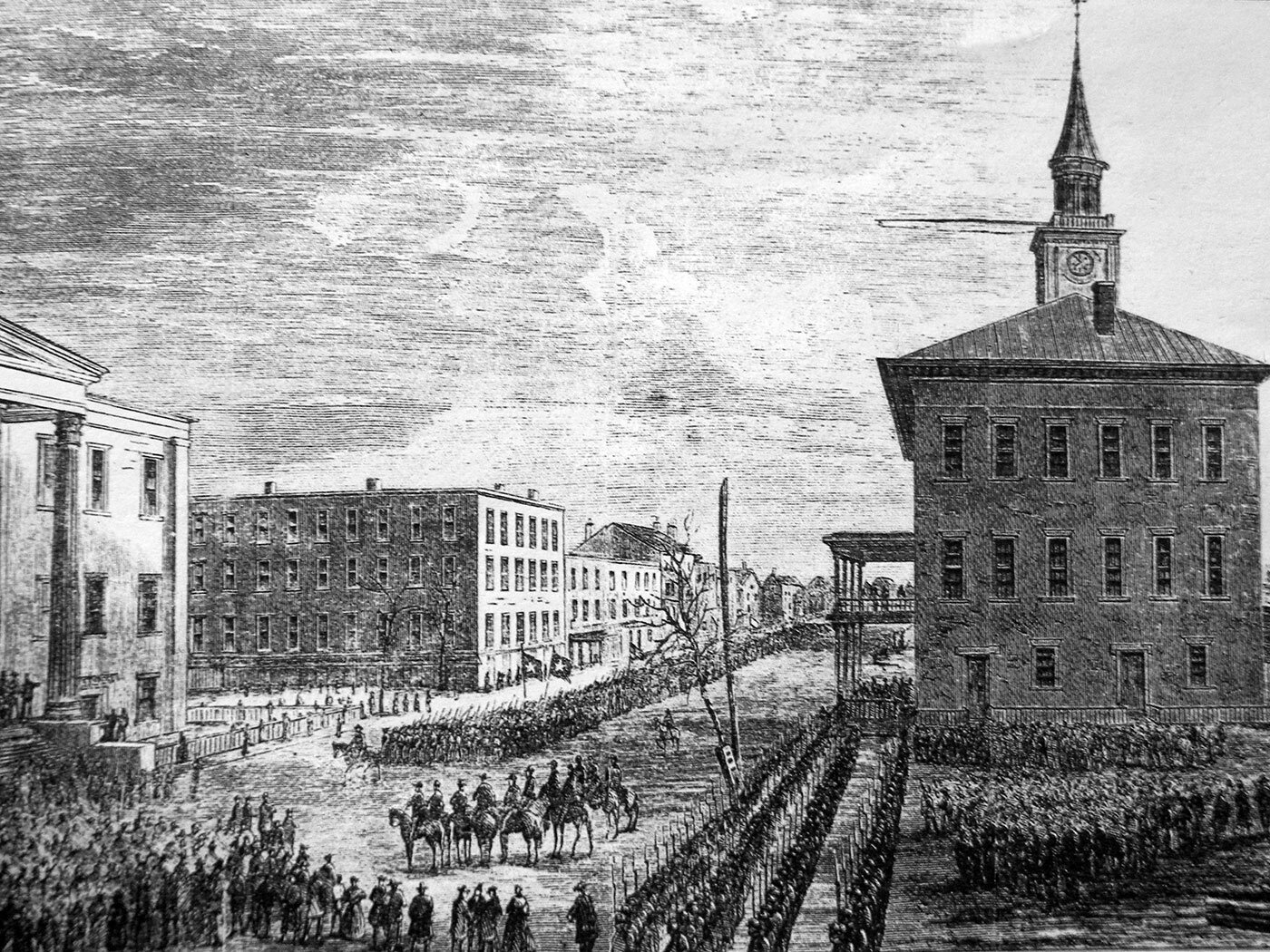
March to the Sea
As he headed to the sea, Sherman and his forces faced little opposition because there were only 13,000 Confederate soldiers assigned to this region. When he arrived in Savannah he found it protected by Confederate General William J. Hardee and 10,000 men. The first thing Sherman did was shoot a few artillery barrages into the town. Then he warned them that he would resort to the harshest measures. Hardee and his men immediately abandoned the town. In Savannah, Sherman seized 50 guns, large amount of ammunition, and 25,000 bales of cotton. Sherman achieved what he wanted to achieve. He destroyed the heart of the South. The people no longer had the ability to supply their army with food.
